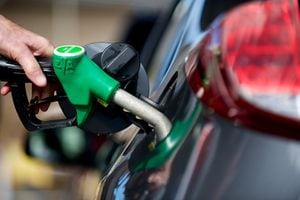E&I wants to end new petrol and diesel car sales in 2035
PETROL and diesel new car sales will be banned by 2035 and a commitment to carbon neutrality by 2050 written into law under proposals by Environment & Infrastructure.

It has submitted a climate change policy letter and action plan with the aim for it to be debated by the States in August.
The phasing out of petrol and diesel cars would be in line with the UK, from where most of the island’s cars are imported.
‘Viewed through the lens of the States of Guernsey’s Covid-19 recovery strategy, this climate change policy actively contributes to a sustainable economy, community and health and care recovery plan,’ said E&I president Deputy Barry Brehaut.
‘During the Covid-19 global pandemic, Guernsey has shown how it may be small, but it can be an inspiration to other jurisdictions.
‘The Guernsey Together spirit has seen us accomplish great things. If we can apply that same spirit to our Revive & Thrive and Build Back Better initiatives, then we can ensure our island is sustainable and resilient to possible future climate change impacts for generations to come.’
E&I said that the need for urgent action on climate change is widely recognised and, as a mature and responsible jurisdiction, Guernsey is alive to the pressing need to minimise its carbon emissions and reduce its environmental impact.
‘Not only does Guernsey contribute to global climate change through the emission of greenhouse gases but, as an island, it is already feeling the impacts of climate change,’ it said.
‘Rising sea levels are already being experienced, and volatile and violent weather patterns are increasing, leading to a greater risk of flooding, flood damage, hotter summers and milder winters. Each of the last six years have been warmer than average.’
Guernsey’s greenhouse gas emissions have fallen by just under 29% compared with 1990 levels.
But E&I says this is still well short of the reductions scientists say are necessary to avert dangerous levels of warming.





